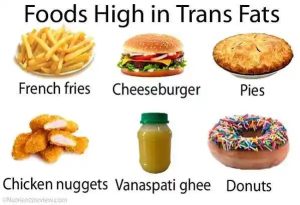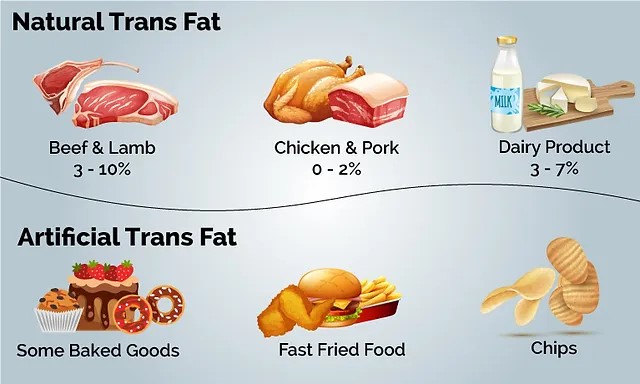The World Health Organisation (WHO) has expressed optimism that trans-fat elimination is attainable, affordable, and lifesaving.
Experts warn that trans fats – or trans-fatty acids – clog arteries, increasing the risk of heart attack and death.
Cardiovascular diseases are the leading cause of mortality in the world and more than 278,000 deaths per year can be attributed to intake of industrially produced transfat, according to the health agency
Director of the Department of Nutrition and Food Safety at WHO, Dr. Francesco Branca, in a statement on Monday, urged Member States to remain committed to their journeys toward achieving goal.
 A total of 53 countries had best practices policies in place for tackling industrial trans fats in food as of 2023, vastly improving the food environment for 3.7 billion people, or 46 per cent of the world’s population, according to WHO’s report.
A total of 53 countries had best practices policies in place for tackling industrial trans fats in food as of 2023, vastly improving the food environment for 3.7 billion people, or 46 per cent of the world’s population, according to WHO’s report.
WHO’s report published on Monday detailed the progress made in eliminating all trans fat.
This is significant progress compared to the 2018 figure of just six per cent, or less than half a billion people, when the ambitious target to eliminate all trans fat from the global food supply by the end of 2023 was initially set by WHO.
 Given their negative health effects, the current advancements made could save approximately 183,000 lives per year.
Given their negative health effects, the current advancements made could save approximately 183,000 lives per year.
However, progress has been unequal, with the highest remaining burden concentrated in the WHO Africa and Western Pacific Regions.
The new report summarizes country actions to ban this toxic chemical and make recommendations to achieve global trans fat elimination.
Remarkable progress has been made in every region of the world towards the WHO’s goal of total elimination of industrially produced trans fats.
The chemicals are fatty acids that can be found in many fried foods, baked goods, vegetable shortening and margarine.
More than four billion people around the world remain unprotected from this toxic chemical, mainly in the WHO African and Western Pacific Regions
In 2023 alone, new best practice policies became effective in seven countries – Egypt, Mexico, Nigeria, North Macedonia, Philippines, the Republic of Moldova and Ukraine.
In January 2024, WHO awarded five countries the Validation Certification for progress in eliminating industrially produced trans fat: Denmark, Lithuania, Poland, Saudi Arabia and Thailand.
However, despite promising trends, progress has been uneven. More than four billion people around the world remain unprotected from this toxic chemical, mainly in the WHO African and Western Pacific Regions.
Implementing best practice policies in just eight additional countries would eliminate 90 per cent of the global deaths associated with this harmful ingredient.
manufacturers must eliminate use of trans fats in product lines and supply chains, even where regulations are not yet in place
“Beyond passing WHO-recommended best practice trans fat policies, ensuring that compliance with these policies is monitored and enforced will be critical to achieve maximized and sustained health benefits of trans fat elimination,” Branca added.
The WHO’s new report helps to further the organisation’s efforts towards global trans fat elimination.
The report urges all countries to enact best practice policies and to better monitor and enforce these policies so that more countries may become eligible for the WHO Validation Certificate.
The WHO also calls on food manufacturers to eliminate the use of trans fats in product lines and supply chains, even where regulations are not yet in place. (NAN)


